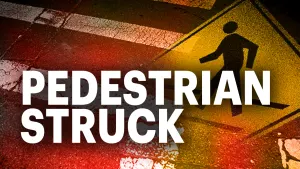Millions of Americans have begun to receive money in their bank accounts from the federal government as part of the COVID-19 economic stimulus package.
Those who already filed their federal income taxes and low-income earners were the first to receive the money. How much a person receives depends on several aspects.
$1,200 will go to those who are single with an Adjusted Gross Income of less than $99,000. $1,200 will go to those who have filed as the head of a household with an AGI of $112,000 or less. And up to $2,400 will go to married couples jointly filing their taxes with an AGI of below $150,000. Those with children will get $500 per child.
So, what are the smart moves to make with the money? Experts say to think of the essentials first.
VIRUS TRACKER: New York, New Jersey, Connecticut coronavirus cases and deaths
MORE: LIVE BLOG - Coronavirus updates from the tri-state area and beyond
MORE: New Jersey Coronavirus Dashboard
FULL COVERAGE: Coronavirus Pandemic
MORE: LIVE BLOG - Coronavirus updates from the tri-state area and beyond
MORE: New Jersey Coronavirus Dashboard
FULL COVERAGE: Coronavirus Pandemic
“If you have a mortgage, rent, you need to be able to put food on the table or provide medication. That’s something at the top of your list first,” says CPA Ralph Thomas.
Thomas is the CEO of the New Jersey Society of CPAs. He says that Americans who are financially OK may consider donating the money to charity – or…
“You could have an opportunity to fund a retirement plan or a health savings account. A backstop in case something happens down the road unexpected,” he says.
For those who did not receive their money yet, head to IRS.gov where you can sign up for direct deposit and track it. Some people did not know that their money was coming.
Seniors citizens who are on Social Security and aren’t filing taxes will be getting money as well. They will receive it the same way they receive their Social Security benefit.
Officials are also warning Americans of potential scams. The IRS will not be calling anyone about eligibility. Americans should not offer their bank numbers to strangers offering to help. Also, be careful of any emails with the phrase “stimulus checks” from people that you do not know.
More from News 12
2:36

FIRST CALL: 4 to 8 inches of snow expected to hit New Jersey Friday night
1:35

Santa’s spirit fills Montclair toy store as shoppers rush in
0:33

Porch pirates beware: Bill would make stealing packages a federal crime
1:04

Mother, child among pedestrians hit in separate crashes across New Jersey
1:40

Toll of Commuting: How much would Santa’s global commute cost? News 12 crunches the numbers
1:27
